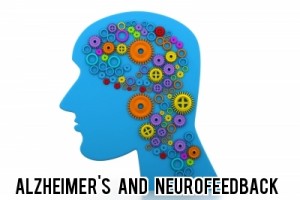Recent studies have estimated Alzheimer's disease to be the third leading cause of death among the elderly, just behind cancer and heart disease, affecting more than 5 million Americans today. Alzheimer's disease is a progressive disorder of the brain that compromises memory and cognitive functioning. Degenerative changes occur in the brain, making every day activities more and more challenging until the person becomes unable to care for themself. Additionally, Alzheimer's is the leading cause of dementia in the elderly population, accounting for 60%-70% of dementia cases, which results in further loss of cognitive functioning. Even the easiest, most commonly performed tasks in a person's life become impossible.
Mother of David*, age 18, describes improvements after neurofeedback sessions:
"David is almost nineteen years old. At 245 pounds, he’s a big boy. Sometimes he acts like a giant 3 year old, although he can find any obscure website effortlessly. His interests range from sports to Bill Nye to obnoxious games and comedy shows. Which he likes to repeat. A lot. His biggest problem is expressive language. All the words seem to be in there, but they don’t come out in the form of sentences. Besides, as far as he’s concerned, I’m psychic, so communicating in short hand is adequate.
We’ve done the usual gamut of therapies – special diets, supplements, sensory therapy, acupuncture, homeopathy, and even the drug rout when he was younger. The drug therapy made him easier to manage in school but nothing else. Diet and supplements improved his overall health - he has asthma - but it wasn’t enough to boost his language, and he had a number of residual problems that didn’t budge, including chewing on his hands and toe walking.
ADHD diagnoses are on the rise for America’s youth with an estimated 6.4 million children between the ages of 4 and 17 already diagnosed. Two-thirds of the children diagnosed are placed on stimulant prescription medication to help correct their behaviors. However, about 50% of people who have ADHD also have concurrent diagnoses of additional psychiatric conditions with anxiety disorders being among the most common. Furthermore, one fourth of children who have been diagnosed with anxiety disorders also have ADHD. In fact, many studies have suggested that ADHD occurring with anxiety may potentially deserve its own sub-classification under the ADHD umbrella. Although the cause for both conditions continues to be widely debated, professionals suspect a combination of genetics and environment to be responsible for the onset of these mental conditions.
The connection between music and brain development has been a topic of high interest in the past few decades, particularly for educators interested in helping students reach their potential for learning when faced with executive function struggles. Research continuously points to increased ability in various areas of a child’s life when exposed to music at young ages. What is it about music that helps the brain function with greater capabilities? Could music be used as a tool for assisting children with executive function struggles?
Fatigue is a common problem most people experience from time to time. Often times, fatigue can be a symptom of an illness. However, for some, fatigue continuously lingers, creating an impact on day-to-day life. In fact, about 20% of people in the United States suffer from fatigue, which they claim to be so severe that it interferes with their ability to complete a regular day. Experiencing fatigue means feeling a lack of energy and motivation, often confused with drowsiness, which is the feeling of needing sleep. If a person is experiencing unexplainable fatigue, it may be possible a person’s wellness is being compromised by an imbalance occurring without notice. Review these areas of wellness if fatigue becomes a common occurrence, hindering daily life.









